Byron Joyner, MD, MPA
LEAD-UP (Leadership to Advance Diversity in Underrepresented Populations) is a unique program that began at the University of Wisconsin to cultivate leadership skills for interested residents and fellows from diverse backgrounds. That program proved to be extremely successful, and we are fortunate to have Dr. Angele Theard, Associate Professor UW Department of Anesthesiology & Pain Medicine, nurture that program here at the University of Washington. LEAD-UP is meant to connect residents and fellows to leadership skills, mentorship and coaching – tools they can use in their future administrative and leadership roles. As such, this program provides them an opportunity and a voice so that they can make vital changes in their communities. We can solve more problems and create a better world when we have diverse perspectives at the table.
Byron Joyner, MD, MPA
Vice Dean for Graduate Medical Education, Designated Institutional Official

Angele Theard, MD
A diverse healthcare workforce matters.
Diversity in medicine and leadership development leads to better patient outcomes (1, 2, 3). Diverse patients trust our medical system just a little bit more when they are cared for by someone that looks like them (4, 5, 6). Diverse groups work harder to solve problems and create more innovative ideas (1, 7). Leaders in medicine, together with their multidisciplinary teams, have and continue to work to increase the 7% of Underrepresented in Medicine (URiM) fulltime faculty and faculty leaders in the US today. The American Associate of Medical Colleges (AAAMC) reports that 83% of deans in US medical schools are non-URiM compared to the 18% who are URiM (8, 9).
LEAD UP (Leadership Education to Advance Diversity of Underrepresented Populations) is an effort towards changing these statistics through focused programming on leadership development that considers many realities that face URiM learners and faculty. Discrimination and bias contribute to an unfavorable learning/working environment (8). Additionally, URiM faculty tend to have their professional interests devalued (10). More clinical activity and less time for research, compromises promotion for URiM faculty (8, 9). For these reasons – and others, leadership opportunities for URiM have been limited, despite URiM faculty endorsing high aspirations (10). LEAD UP approximates a multifaceted learning health system approach to education. This program considers skills sets effective for leadership and introduces broad concepts of cultural wealth, professional identity, and values in a learning environment that is supportive and collaborative. Ongoing feedback is built into the regular small group discussions (5 members of the cohort) and during one-to-one coaching to improve self-awareness. LEAD UP provides URiM residents/fellows an opportunity to enrich their lives while, at the same time, creating the potential for more diversity in our future leaders of medicine.
Members of our first LEAD UP cohort came from training programs across UWSOM and engaged in relevant and worthwhile discussions. They learned a lot about leadership – and more about themselves and their potential. One LEAD UP participant summarized his experience:
My experience with LEAD-UP provided me with the resources and tools to address my leadership potential in what can sometimes be hostile environments for minorities. Listening to leaders who paved the path for generations to come allowed me to recognize the value in my lived experiences. I am grateful for the opportunity to have explored leadership theories as I transition from trainee to attending.
Dr. Allen Ghareeb, Fellow, Maternal Fetal Medicine, LEADUP cohort, 2024
I feel that the small group size (5) and hearing from national leaders like Dr. William McDade, Chief diversity and inclusion officer, ACGME; DR. Jesse Ehrenfeld, President of the AMA and our Coach; and Ms. Lenetra King, FACHE, author of Unwritten Insights: A Career Playbook for Leaders of Color who looked like our learners and, in many instances, had relatable experiences, helped to facilitate a sense of connection during our 3-hour sessions. A workshop for understanding the critical importance of self-advocacy and self-care by Dr Bonnie Mason, Medical Director of Diversity, Equity, and Inclusion (DEI) for ACS, and author of Power Moves: The Doctor’s Guide to Contracts and Negotiations, was engaging and positively personal. An in-person team-building exercise lead by our own UWSOM leader, Dr. Byron Joyner, Vice Dean for Graduate Medical Education and DIO was inspirational. A snapshot of pre/post trainee survey responses and exit interviews reflected increased interest in and understanding of effective leadership.
I look forward to meeting the next LEAD UP cohort – LEAD UP 2026, and continuing conversations – and learning with last year’s group. I am grateful for the support from GME, OHCE, and our UWSOM program directors and chairs without which this program would not be possible. Thank you!

References
- Childs E, Yoloye K, Bhasin RM, Benjamin EJ, Assoumou SA. Retaining Faculty from Underrepresented Groups in Academic Medicine: Results from a Needs Assessment.South Med J. 2023;116(2):157-161. doi:10.14423/SMJ.0000000000001510
- https://media.npr.org/assets/img/2017/10/23/discriminationpoll-african-americans.pdf
- Phillips, K. (2014, September 19). How Diversity Makes Us Smarter. Am., 311(4), 42-47. Retrieved August 30, 2024, from https://doi.org/10.1038/scientificamerican1014-42
- Gomez LE, Bernet P. Diversity improves performance and outcomes.J Natl Med Assoc. 2019;111(4):383-392. doi:10.1016/j.jnma.2019.01.006
- https://www.aamc.org/data-reports/faculty-institutions/data/us-medical-school-deans-trends-type-and-race-ethnicity
- Gutierrez-Wu J, Lawrence C, Jamison S, Wright ST, Steiner MJ, Orr CJ. An evaluation of programs designed to increase representation of diverse faculty at academic medical centers.J Natl Med Assoc. 2022;114(3):278-289. doi:10.1016/j.jnma.2022.01.012
- Pololi LH, Evans AT, Gibbs BK, Krupat E, Brennan RT, Civian JT. The experience of minority faculty who are underrepresented in medicine, at 26 representative U.S. medical schools.Acad Med. 2013;88(9):1308-1314. doi:10.1097/ACM.0b013e31829eefff
- Drake AF, Sollecito WA, Horneffer KE, et al. Building diverse leadership in an academic medical center: The ACCLAIM program.J Natl Med Assoc. 2023;115(2):134-143. doi:10.1016/j.jnma.2023.01.004
- Brouns JW, Berkenbosch L, Ploemen-Suijker FD, et al. Medical residents perceptions of the need for management education in postgraduate curriculum A perliminary study. Int J Med Educ. 2010;1:76-82
- Blumenthal DM, Bernard K, Bohnen J, et al. Addressing the leadership gap in medicine:Residents’ need for systemic leadership development training. Acad Med 2012;87:513-522
